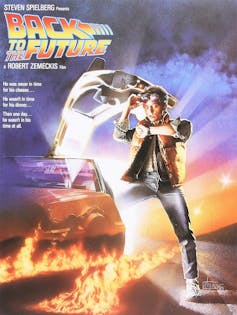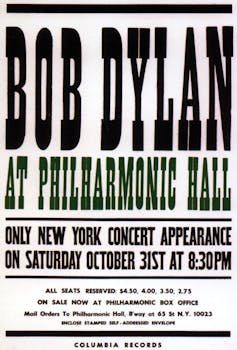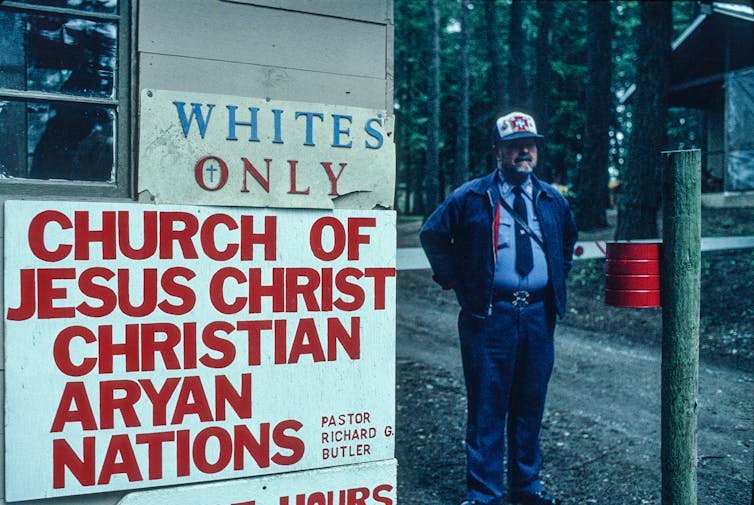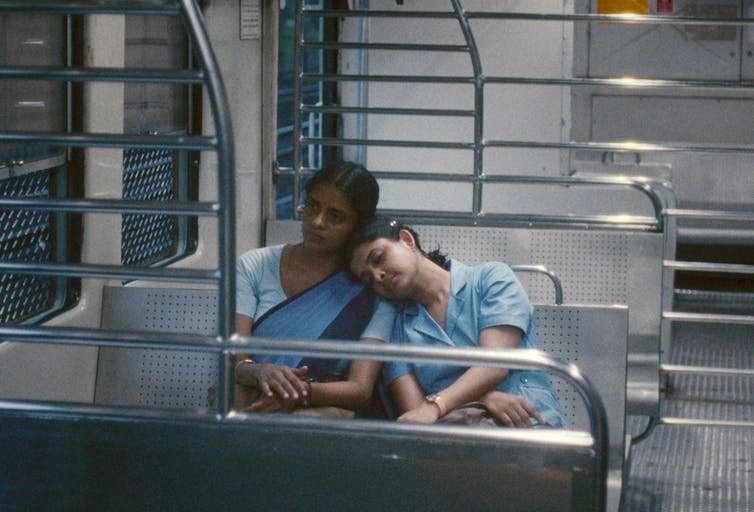The festive season can have a strange effect on our perception of time. Days blur together, hours stretch or vanish, and a sense of timelessness sets in. So, what better period to enjoy films that help us to reflect on time itself?
From mind-bending narratives to meditative explorations on time’s passage, these films are perfect for losing yourself – and finding new perspectives on time.
1. Citizen Kane (1941)
Orson Welles’ cinematic masterpiece doesn’t just tell the story of publishing tycoon Charles Foster Kane, it fragments it. It begins with Kane’s death and enigmatic final word, “Rosebud”. The film then unfolds in flashbacks narrated by those who knew him as they seek to discover the word’s meaning.
Each perspective adds a layer to his life while challenging the idea of a singular truth. Welles uses time as a puzzle, showing how memory and perception overlap to shape our understanding of the past.
2. Memento (2000)
Christopher Nolan’s breakthrough film has a reverse chronological structure, intercut with black-and-white sequences moving forward in time. The story is told through a series of scenes that move backwards while the protagonist, Leonard Shelby (Guy Pearce), moves forward with no short-term memory.
The film opens with the end so we know what happens but we don’t know why or how we got there. Each scene ends where the previous scene began, creating a sense of disorientation that mirrors Leonard’s condition.
3. The Clock (2010)
Christian Marclay’s 24-hour video installation turns time itself into art. It includes a stunning montage of scenes from film and television that feature clocks, timepieces or people waiting. More than 12,000 clips are meticulously assembled to create an artwork that itself functions as a clock.
The film’s presentation is synchronised with the local time, resulting in the time shown in any scene being the actual time. This makes viewers acutely aware of time’s passage while simultaneously losing themselves in a hypnotic stream of cinematic moments.
4. High Noon (1952)
This landmark Western film collapses real time with screen time. Marshal Will Kane (Gary Cooper) is preparing to retire and leave town with his new wife, Amy (Grace Kelly). But he receives news that Frank Miller, a criminal he sent to prison, has been pardoned and is arriving on the noon train seeking revenge.
Despite pleas from his wife and townspeople to flee, Kane decides to stay and face Miller and his gang. He then finds himself increasingly isolated as the town abandons him. The film unfolds in approximate real time (85 minutes) between 10.40am and noon.
5. The Killing (1956)
Stanley Kubrick’s non-linear “one-last job” heist movie fragments time to brilliant effect. The narrative unfolds in a series of progressive flashbacks and even “flash sideways”, in which the actions and events are repeated from different characters’ points of view.
The studio hated it and asked him to cut it in a conventional fashion. But Kubrick abandoned the re-edit and returned the film to its original structure. As he told film critic Alexander Walker in 1971: “It was the handling of time that may have made this more than just a good crime film.”
6. Donnie Darko (2001)
This cult favourite merges teenage alienation and mental health with metaphysical time travel. Jake Gyllenhaal’s Donnie is haunted by visions and drawn into a “tangent universe” where time corrupts and loops back on itself. The film’s complex temporal structure involves parallel universes, predestination and sacrifice.
Its ambiguous ending leaves viewers debating whether Donnie’s actions were heroic sacrifice or delusion, making time itself an unreliable narrator.
7. Groundhog Day (1993)
Bill Murray’s cynical weatherman wakes up to the same day – again and again. As he relives February 1’s Groundhog Day in an endless loop, he is able to improve himself. He eventually evolves from selfishness and cynicism to empathy and kindness.
Interestingly, the film doesn’t reflect on why its protagonist relives the same day over and over again, and just accepts it.

Landmark Media/Alamy
8. Run Lola Run (1998)
This German-language thriller tells the same story three times, each with a different outcome. It presents alternative scenarios of Lola’s (Franka Potente) attempt to save her boyfriend’s life.
The film explores chaos theory and the butterfly effect through kinetic storytelling, with tiny variations in Lola’s choices rippling into dramatically different futures. The film’s use of different media, including animation and still photography, for different temporal states adds visual sophistication to its exploration of chance and choice.
9. Arrival (2016)
Time is not linear, at least not for the alien visitors in Denis Villeneuve’s sci-fi drama. As linguist Louise Banks (Amy Adams) learns to decode their language, she begins to experience time as they do – all at once.
The “Heptapod” language requires understanding the entire sentence before beginning it. This serves as a metaphor for how we might experience time if we could see it all at the same time.
10. Back to the Future (1985)

Ralf Liebhold/Shutterstock
Few films play with the concept of time as joyfully as Robert Zemeckis’s 1980s classic, and no list of this type would be complete without it. Marty McFly (Michael J. Fox) adventures between the 1980s and 1950s using a DeLorean car retrofitted as a time machine.
It explores time, space and consequence, as Marty races to ensure his teenage parents fall in love to restore the future. It also spawned two popular sequels.
All of these films remind us that time isn’t just a backdrop. It’s a force that shapes our lives, memories and stories. As you sink into the cosy limbo of the season, let these cinematic journeys through time inspire reflection on your own.










